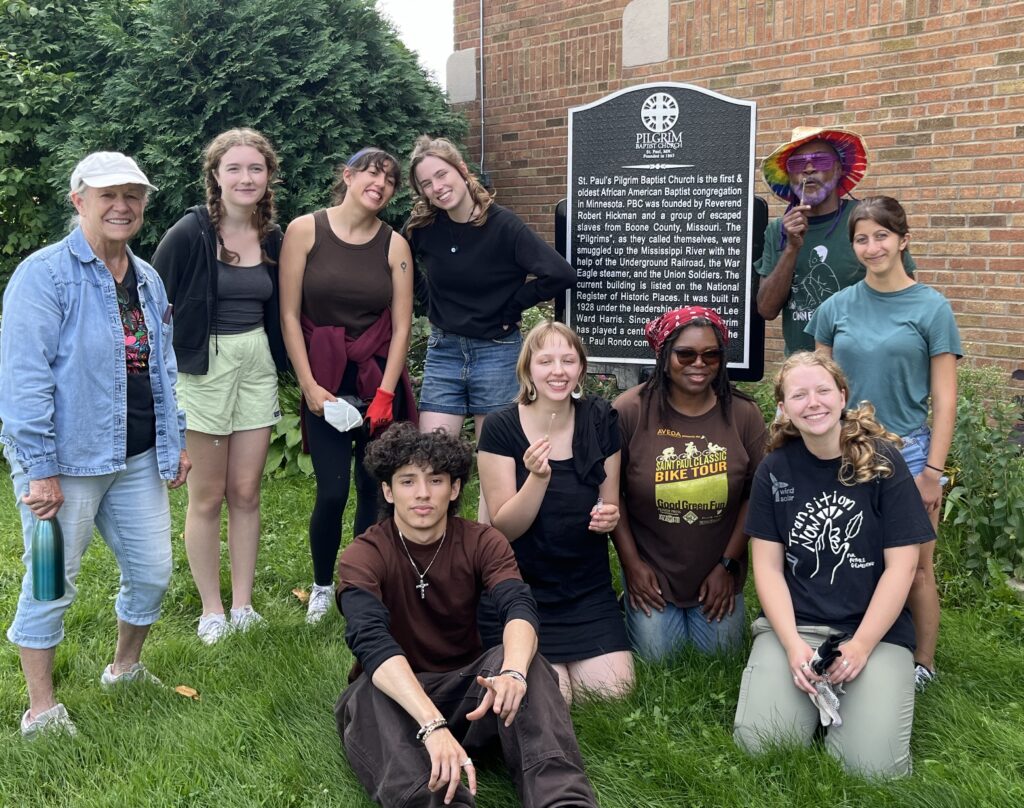About
Contact
Community Engagement CenterMarkim Hall, Third Floor 651-696-6040
cec@macalester.edu
facebook twitter instagram

Guiding Philosophy
The Community Engagement Center is a catalyst for deep collaborative engagement that centers community knowledge(s) and agency in order to creatively solve problems, engage community-identified needs and initiate transformative change.
Rooted in a local context and global framework, we acknowledge higher education has been shaped by histories of racism, settler colonialism, dispossession, and exclusion. These legacies of marginalization continue to have a disproportionate influence on our current educational climate and approaches to learning. Consequently, the numerical majority and ruling minority drives whose knowledge and experiences matter. Situating our work in the understanding of these imbalanced power dynamics helps to bridge our teaching and learning with critical community engagement.
Our approach to community engagement entails understanding ourselves within the context of relationships both on and off campus. These connections consist of members across communities engaging the intergenerational project of building mutually beneficial relationships while gaining a deeper and broader understanding of ourselves and the spaces we inhabit. Building multifaceted long-term relationships aides in our ability to nurture trust partnerships in advancing our shared priorities and asset-based approaches.
We are rooted in this place
We strive to have ongoing, reciprocal, and dynamic relationships with local communities, nonprofit organizations, and government agencies in the Twin Cities. Macalester is located on land identified currently as the Macalester-Groveland neighborhood of St. Paul, but we are situated close to and engage with a wide range of neighborhoods throughout St. Paul and Minneapolis — each with its own history and current reality. While the Twin Cities is lauded for a wide range of community assets and successes, it is vital to recognize that we also have some of the worst equity outcomes (disparities) in the nation. Each neighborhood has a specific history related to settler colonialism, racism, exclusion, etc. We believe it is imperative to dig deeply into the narratives of people and places as we engage with others in community-based work.